[ad_1]
“Teaching the high-calibre executives in this programme is a special challenge; I’m constantly aware of trying to deliver something of value to them,” says Professor Kay Stice, a specialist in managerial accounting who has been an integral part of the EMBA programme since the very first cohort 25 years ago.
“I also realise they don’t enrol to become expert book-keepers. My challenge is to demonstrate the business relevance of the accounting principles and illustrations I use in class and to engage in discussions in which they can practise using the various tools.”
His approach is clearly working because Stice is a three-time winner of the programme’s Professor of the Year Award, most recently this year. He is popular with students and alumni for making the subject accessible and fun.
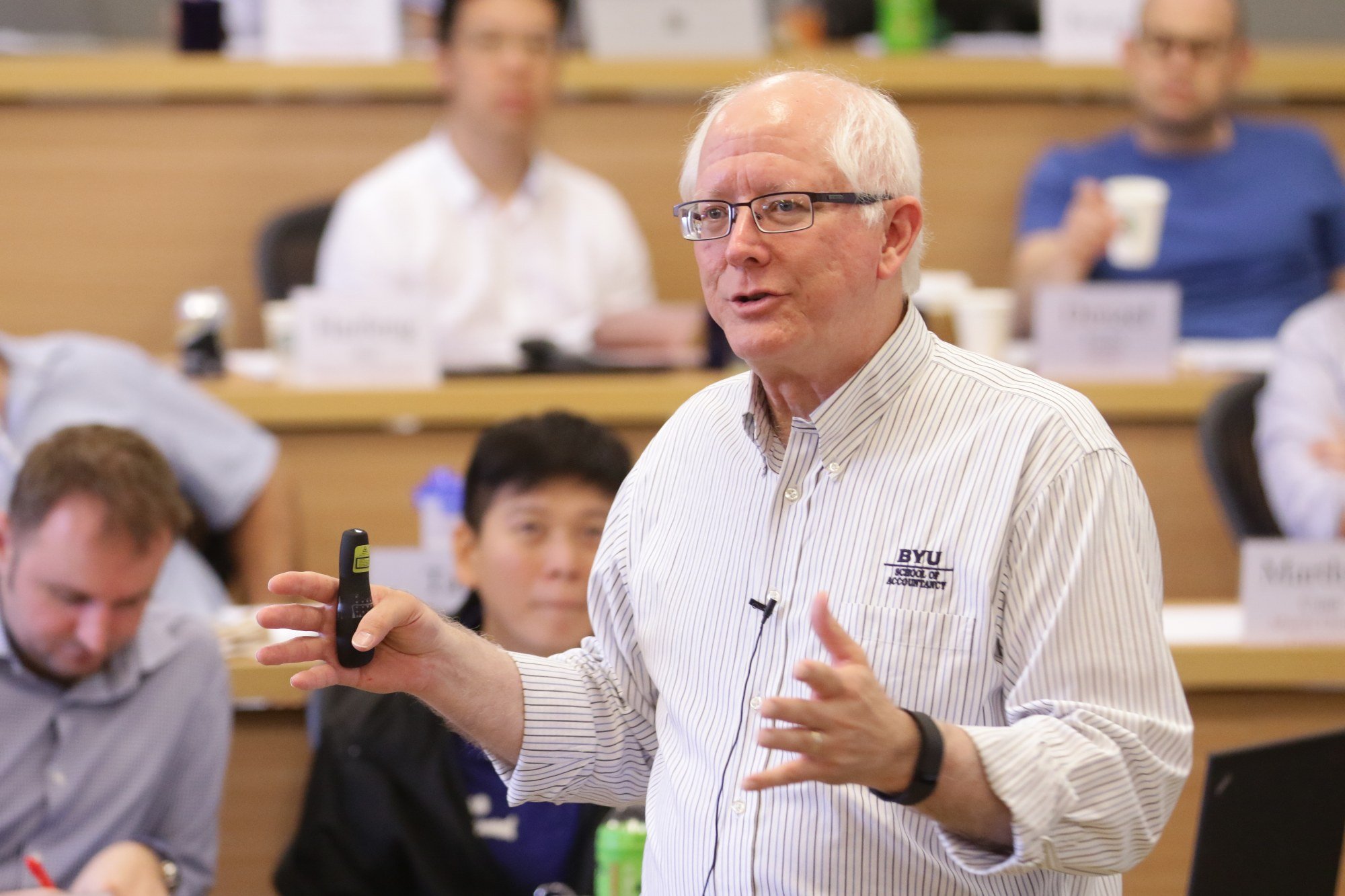
The key to that is staying current. The course will always include some “classic” case studies, for instance on the unvarying importance of managing cash flow.
However, the use of real-world examples plucked from the headlines and the chance to leverage collective experience brings every topic to life, whether it is guidelines for environmental, social and corporate governance (ESG) reporting, proper accounting for cryptocurrency, new methods of accounting for leases, or why electric car company Tesla became a cash cow in 2019.
“The students, as a group, have much more practical experience with applied accounting than I do,” Stice says. “So, I can introduce the topic of accounting-based loan covenants, but the subject really comes alive when a student describes a recent instance of what happens when a borrower violates a loan agreement.”
Similarly, if teaching the concepts of break-even analysis, he might ask the class to calculate the number of customers per hour the average McDonald’s fast-food restaurant location needs to break even. Such upfront problems push students to tap into their own experience, survey the issues and justify their reasoning.
“My objective is to give them insights they can then apply in their businesses,” Stice says. “I can’t keep ahead of them, but I can help them think more carefully about the business reports they use every day.”
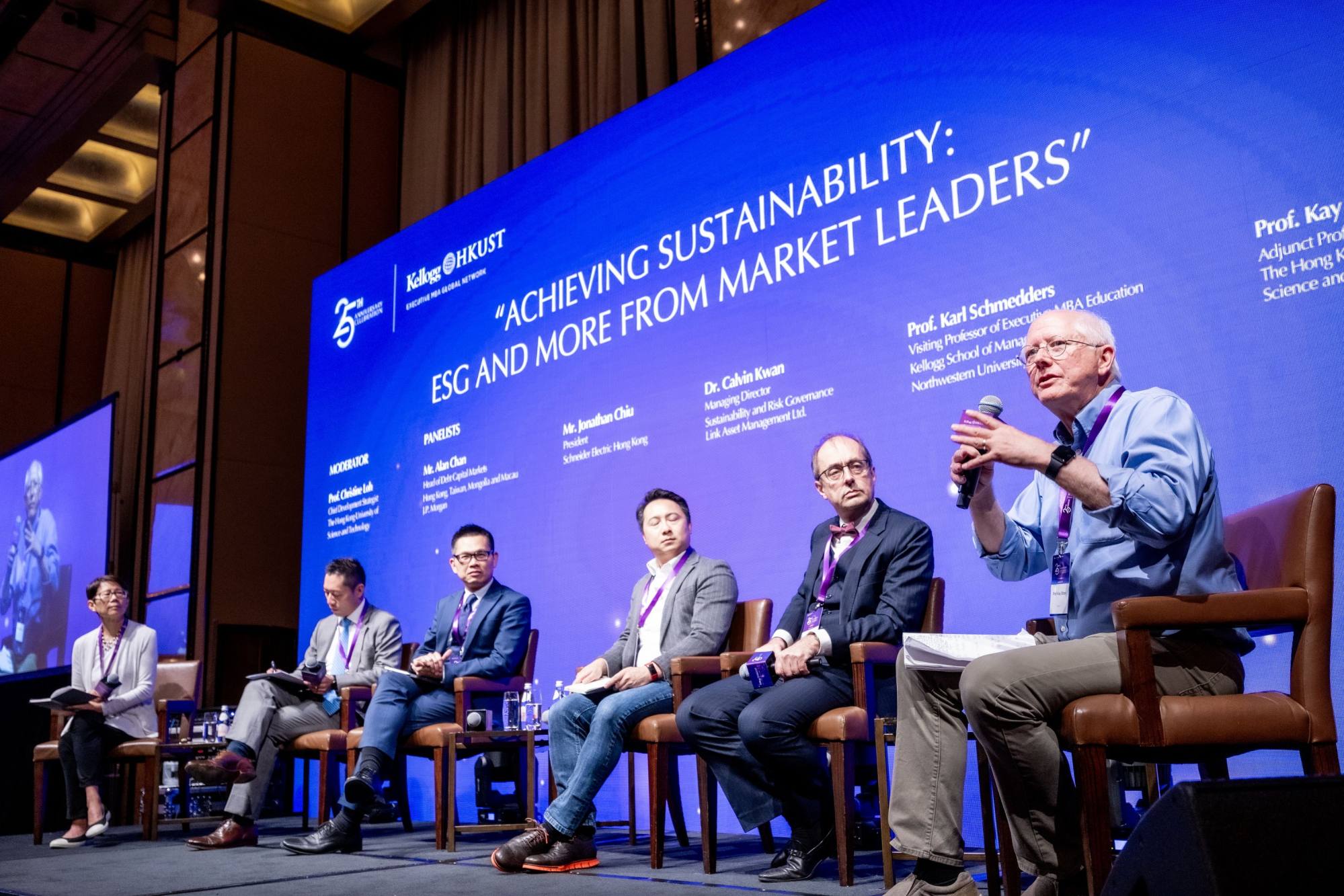
He says it is always encouraging to see the chief financial officers in a class assisting those students who are less familiar with the details of a balance sheet. For him, it also highlights the collaborative nature of the EMBA and the opportunities for everyone to learn from others in the class.
“Students formally evaluate my course twice a year, and I pay close attention to their feedback,” Stice says. “That helps me to deliver value and identify areas for improvement.”
US-based Professor Alexander Chernev, who teaches a course in marketing strategy and a global elective in brand management, is just as attuned to meeting the high expectations of each EMBA cohort.
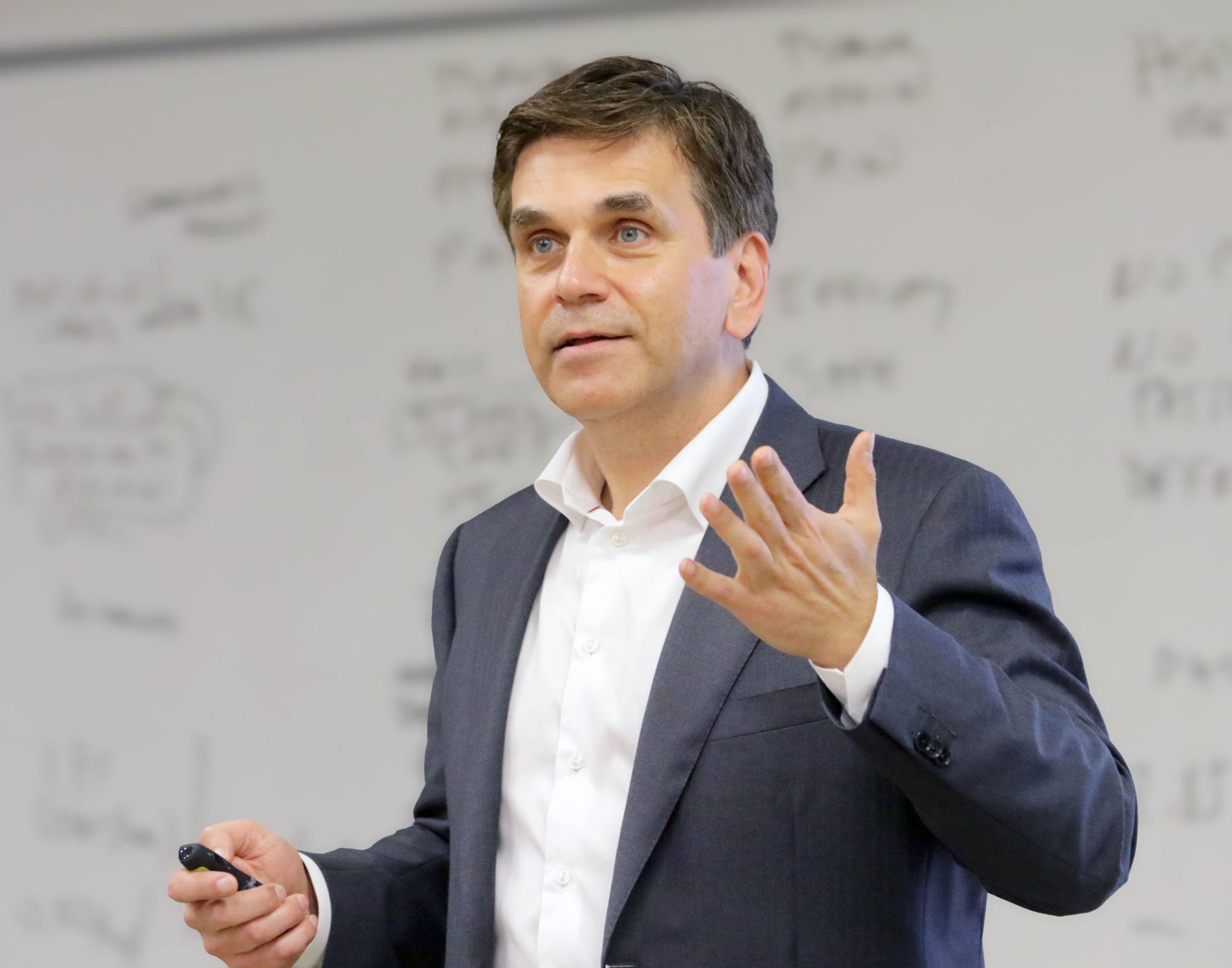
He has been with the programme for 10 years – teaching the Hong Kong class for the past six – and is still struck by the range of cultural upbringings and industry expertise found in every group. With that in mind, he makes a point of tailoring the classroom experience to the unique background of students in each cohort.
“You often start with a theory, but you always have to present practical implications,” says Chernev, who was voted the top professor last year. “When we meet in person in the classroom, I discuss business problems rather than lecturing.
“It doesn’t make much sense for students to fly to Hong Kong just to sit and listen to a lecture. Instead, I front-load all the content before students come to class, by having them read the theory and watch video lectures that I developed for the course. This enables students to learn at their own pace.
“In addition to the theory, students are also presented with a series of business cases that they have to solve first by themselves and then in small teams. Then, in class, we have an interactive discussion that is very dynamic and focused on finding the best solution for the problem posed in the case.”
To keep the discussion both practical and meaningful, Chernev frequently poses his favourite question: “What do you do?” This obliges students to assess the key elements of each case critically, constructively and concisely.
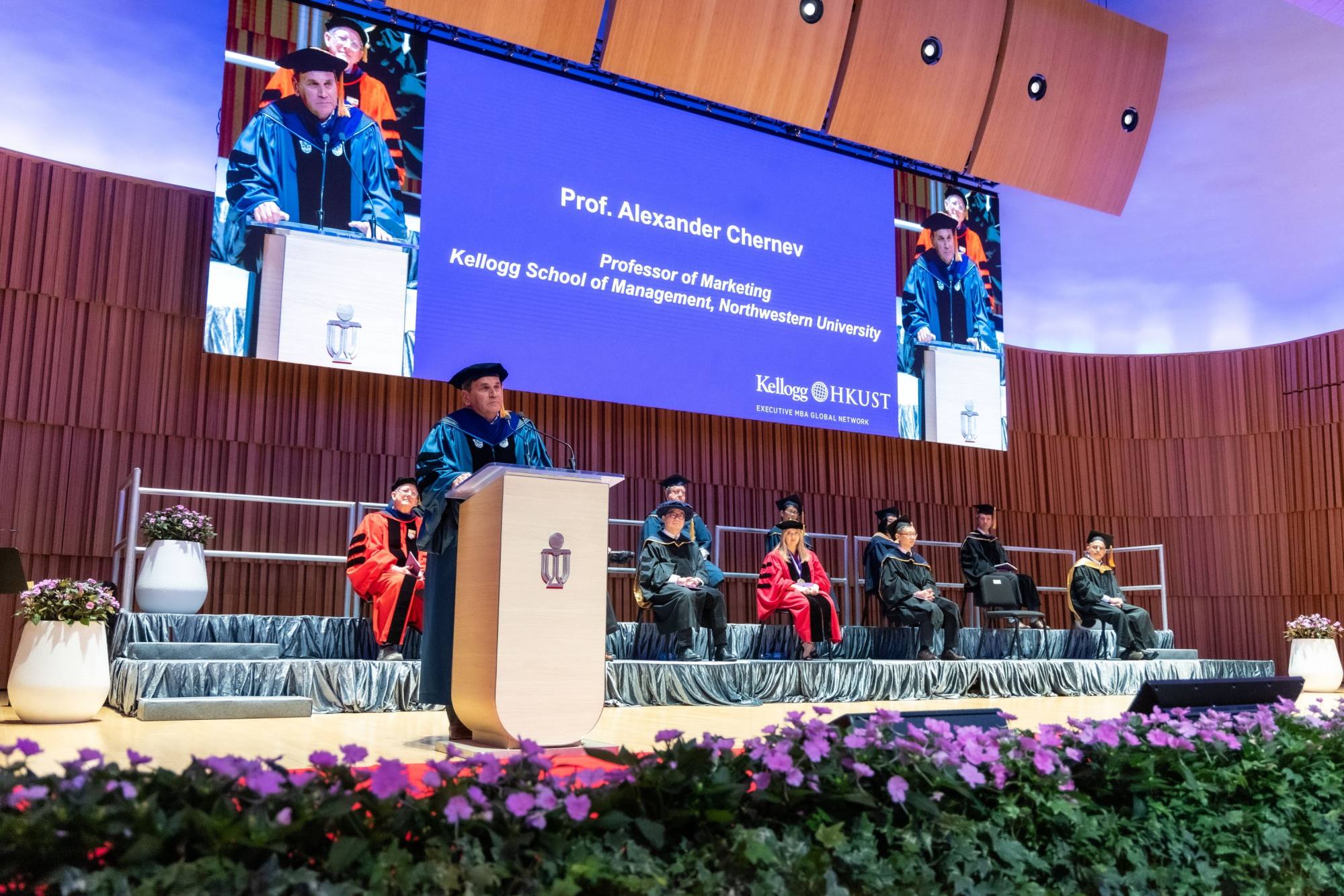
The business cases involve decisions about building strong brands, developing a value proposition, identifying target customers and launching new products. The problems can be drawn from any industry and the solutions are never obvious. The pieces, though, come together to create a framework built on marketing science.
Students are encouraged to think outside the box because, unlike in the workplace, there are no downsides to getting things wrong in the classroom. In fact, Chernev believes that making a mistake in the classroom is a good thing because it offers an opportunity to learn and decreases the chance that students will make the same mistake in the real world.
On occasion, Chernev likes to quote Albert Einstein’s view that learning is not acquiring facts, it is about training the mind to think. “This learning approach resonates with students,” says Chernev, noting that he still hears regularly from alumni he taught 10 or more years ago and enjoys discussing new developments that can create value or will change the business world.
“Talking to current and former students is a very valuable opportunity for me,” he says. “I enjoy these discussions as they often force me to consider how the frameworks I developed and taught would work across a variety of industries.
“This is the real test of any theory and a framework – they should help people make better decisions. This is why teaching Kellogg-HKUST EMBA is a great opportunity, not only to share my knowledge, but also to enrich this knowledge by interacting with so many high-calibre students in the programme.”
For Professor Milind Rao, who teaches a core course on global macroeconomics and a global elective on value investing, the basic goal is to develop a framework with clear conclusions that can be supported by data. Within that framework, content can be added and adapted as the business world comes up with new examples, methods and priorities.
“I want students to know what all economists agree on, what is science and what isn’t,” Rao says. “They can then make up their own minds on different issues.”
Issues raised are always topical and relevant to this part of the world and include among other things, the US-China trade war, mainland China’s property bubble and the internationalisation of the renminbi.
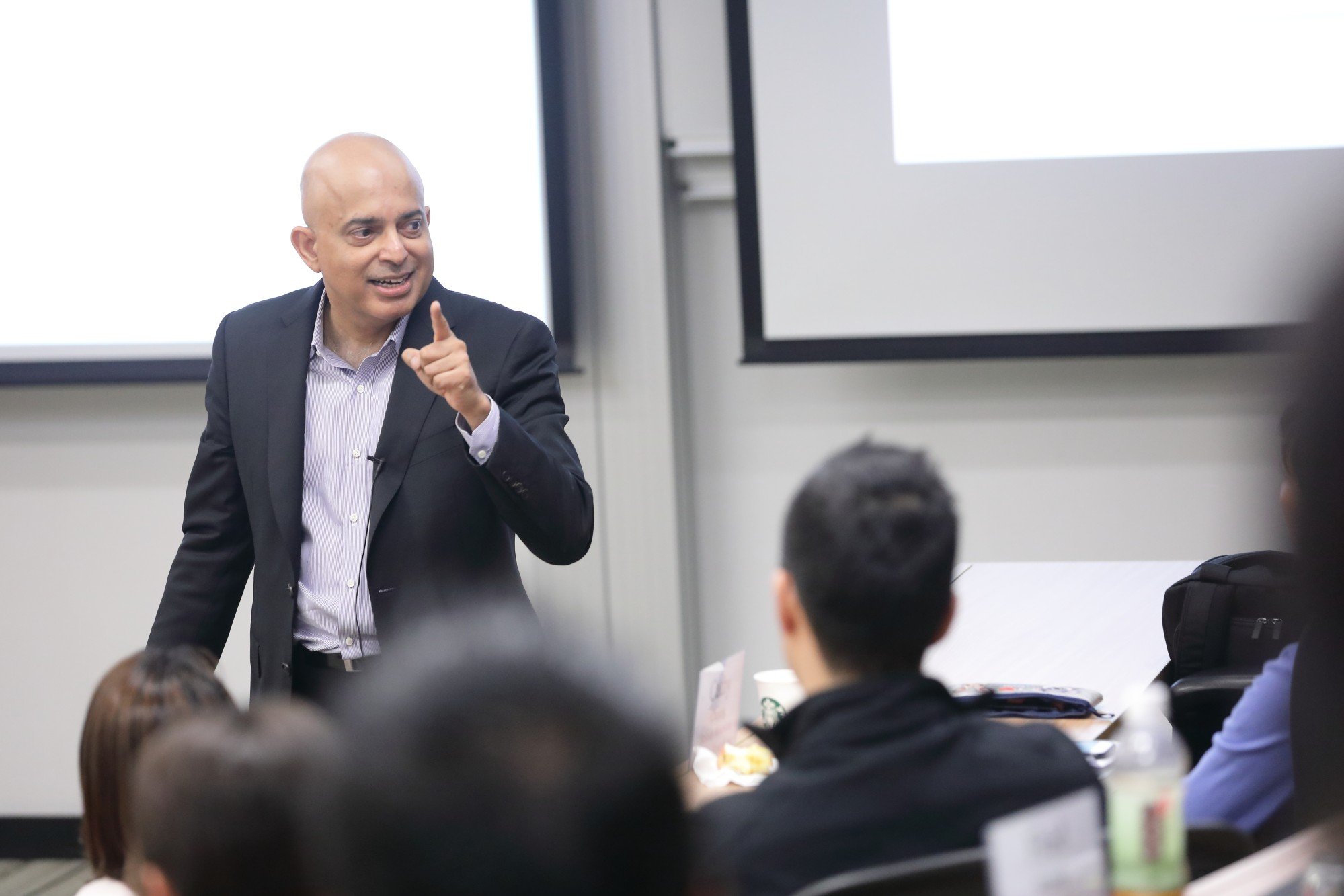
“After teaching an EMBA class, I am always on a ‘high’,” says Rao, who has been with the programme for the past 18 years. “It is absolutely stimulating to be able to discuss material at a level and an intensity that is unprecedented. The questions are always interesting and probing, and I frequently end up thinking differently about a topic.”
He says that the secret to good teaching is not to convey information, but to provide a framework that makes it possible to solve problems. Students should also be able to see the relevance and applicability of any theory in a real-world context.
He says the Class of 2020 cohort came to exemplify the phrase “high impact, low ego” and was perhaps unique in terms of its overall intellectual calibre. “It was such a universally high-achieving class – and there was a wonderful cohesiveness and camaraderie within the class.”
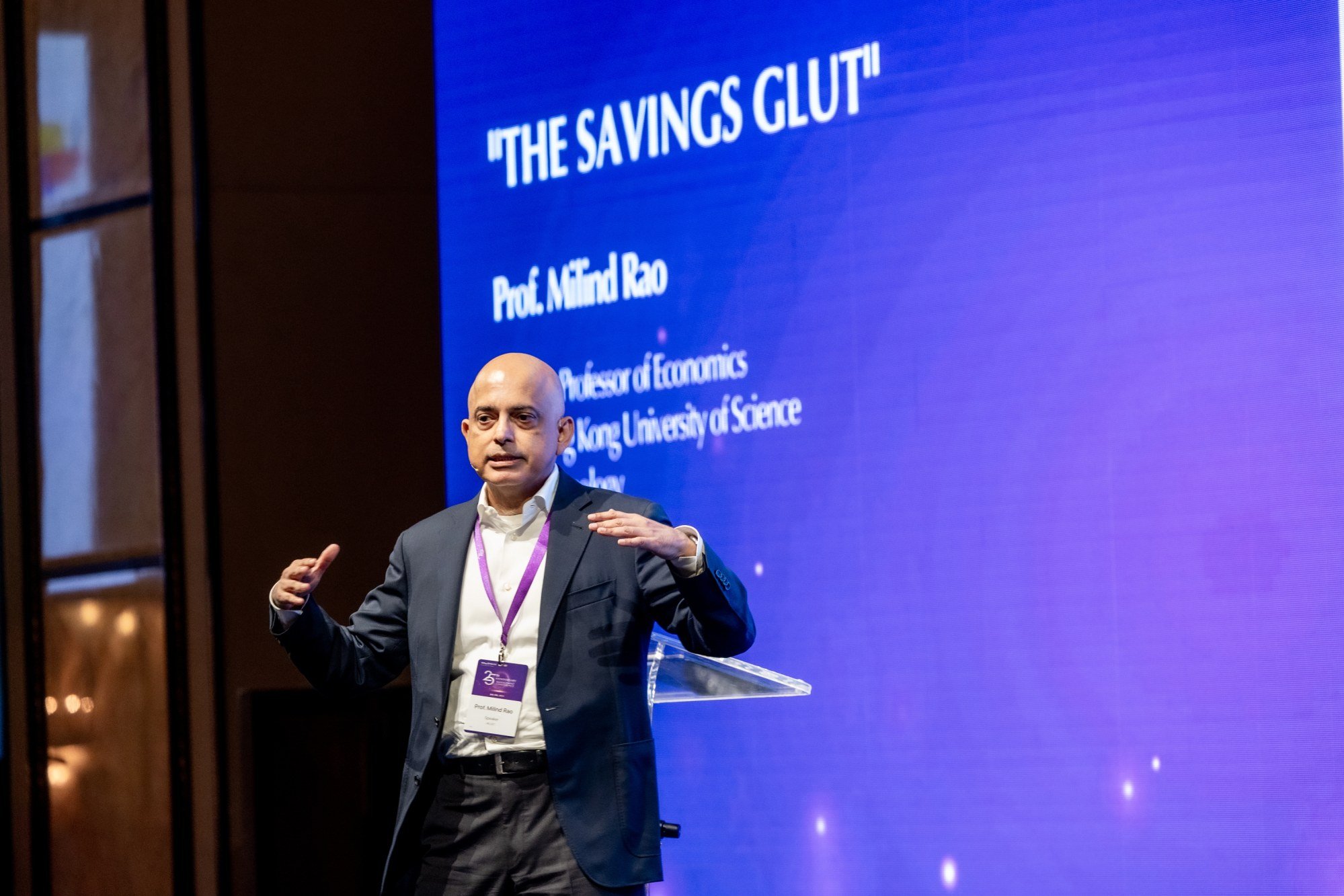
The difficulty is communicating to the extreme ranges of backgrounds that are represented, he says.
“On the one hand, there are individuals who do economics every day for their jobs; on the other, there are those who are seeing this for the first time,” Rao says.
“Here, I am helped by the ‘low ego’ of these high achievers. The ones with backgrounds cater their in-class comments and suggestions as to what would be most helpful to the others.
“The students were very demanding in class, but also very appreciative. They expect a lot and are all highly motivated; they want to apply what they have learned in their day-to-day business responsibilities. It is a privilege for me to be in that environment, teaching people who are high achievers and remarkably intelligent individuals.”
[ad_2]
Source link
